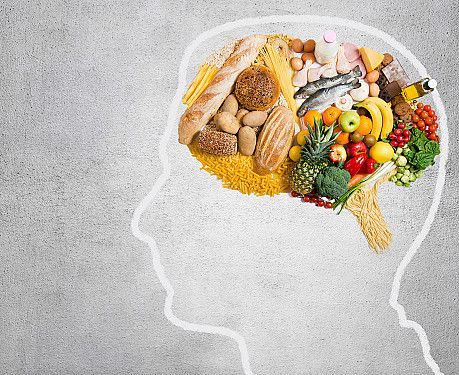
In recent years, there has been a growing body of research that suggests a strong connection between diet and mental health. While many people are aware of the physical health benefits of a balanced diet, the impact of nutrition on mental well-being is often overlooked. In this article, we will explore the link between diet and mental health and discuss how making healthy food choices can positively impact your mental well-being.
The Gut-Brain Connection
One of the key mechanisms through which diet affects mental health is the gut-brain connection. The gut is often referred to as the “second brain” due to its complex network of neurons that communicate with the central nervous system. The food we eat can directly influence the composition of our gut microbiota, which in turn can affect our mood and behavior.
Research has shown that a diet high in processed foods, sugar, and unhealthy fats can lead to an imbalance in gut bacteria, known as dysbiosis. This dysbiosis has been linked to a range of mental health disorders, including depression, anxiety, and even schizophrenia. On the other hand, a diet rich in fiber, fruits, vegetables, and healthy fats can promote a diverse and healthy gut microbiota, leading to improved mental well-being.
The Impact of Nutrient Deficiencies
In addition to the gut-brain connection, nutrient deficiencies can also play a significant role in mental health. Certain nutrients, such as omega-3 fatty acids, B vitamins, and magnesium, are essential for brain function and mood regulation. A diet lacking in these nutrients can contribute to symptoms of depression, anxiety, and other mental health disorders.
For example, omega-3 fatty acids are crucial for brain health and have been shown to reduce inflammation in the brain, which is linked to depression. B vitamins are important for the production of neurotransmitters like serotonin and dopamine, which play a key role in mood regulation. Magnesium is involved in over 300 enzymatic reactions in the body, including those related to neurotransmitter function and stress response.
The Role of Inflammation
Chronic inflammation has been identified as a key factor in the development of many mental health disorders, including depression, anxiety, and bipolar disorder. Diet plays a critical role in regulating inflammation in the body, with certain foods promoting inflammation while others have anti-inflammatory properties.
A diet high in processed foods, sugar, and unhealthy fats can lead to chronic inflammation, which can impact brain function and mood. On the other hand, a diet rich in anti-inflammatory foods like fruits, vegetables, nuts, and seeds can help reduce inflammation in the body and support mental well-being.
Practical Tips for Improving Your Diet for Better Mental Health
– Increase your intake of fruits and vegetables, aiming for a variety of colors and types to ensure you are getting a wide range of nutrients.
– Incorporate more omega-3 rich foods into your diet, such as fatty fish, flaxseeds, and walnuts.
– Limit your intake of processed foods, sugar, and unhealthy fats, which can contribute to inflammation and dysbiosis.
– Stay hydrated by drinking plenty of water throughout the day, as dehydration can negatively impact mood and cognitive function.
– Consider supplementing with vitamins and minerals if you are unable to meet your nutrient needs through diet alone.
Conclusion
In conclusion, the link between diet and mental health is a complex and multifaceted relationship. By making simple changes to your diet and prioritizing nutrient-dense foods, you can support your mental well-being and improve your overall quality of life. Remember that food is not just fuel for the body, but also for the mind. So next time you sit down for a meal, consider the impact it may have on your mental health.
